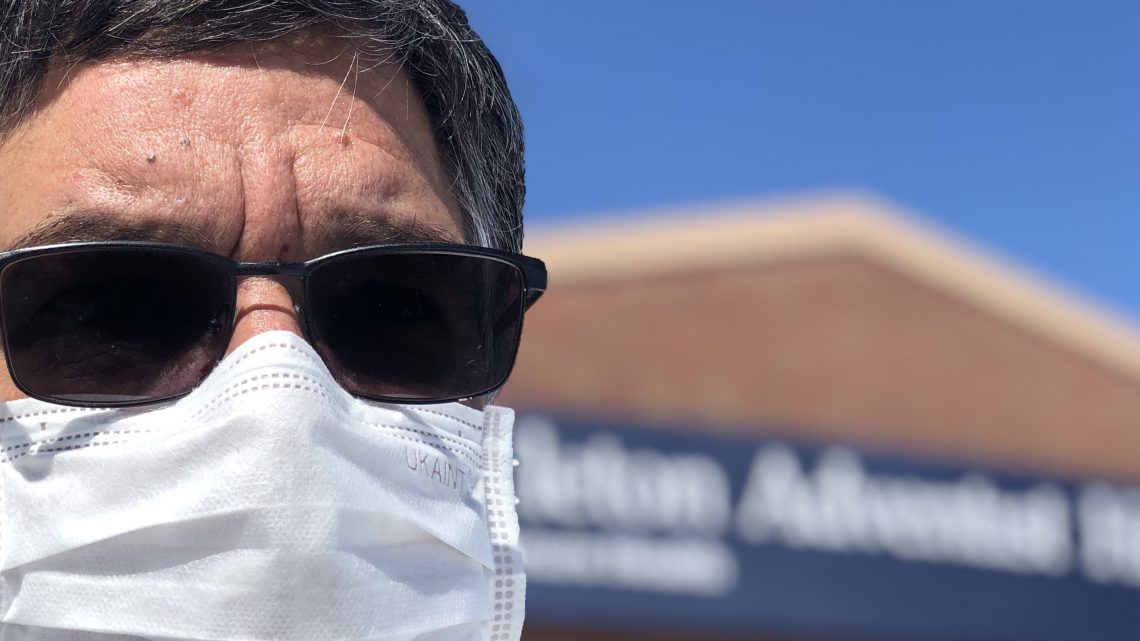Laughter, joy, food and community—key components of what makes us human—tap into areas of our lives that are communal and give us a sense of togetherness. And that’s why I hate COVID-19.
As chaplains, most of our ministry is simply being present. Many times, we sit quietly next to a family member or a dying patient with the only gift we have to offer: presence. That is why these times are so difficult for patients, families, nurses, doctors and chaplains. The one thing all of us can do well has been taken away from us.
I’ve said many times that togetherness has nothing to do with proximity, but it sure does help. COVID-19 has taken from us the ability to hug someone who just lost their spouse, to shake the hand of a first-time dad, to high-five a nurse leaving the hospital after a 12-hour shift. Instead we’ve had to learn how to keep a 6-foot radius around other humans, to smile with our eyes because the rest of our bodies are covered with protective equipment, to look in the eyes of a daughter and say, “I’m sorry you can’t see your mom.”
We’ve been forced to watch a spouse of someone passing away in the ICU who is unable to be in the room, hands on the glass door, tears running down her face while she talks, hoping her voice penetrates the double pane glass and the unconscious state of her husband, assuring him she is there with him. This virus has forced us to take on the emotional stress of family members by sitting in their place next to the patient, by speaking the final words they hear on behalf of the family, by holding a stranger’s hand until their last breath because it was the only hand allowed in the room.
There’s a strange stillness. Our staffing needs have changed, and what used to be a busy unit now sits dimly lit and quiet. At the same time, our ICU—just a floor away—is the hub of frantic activity.
There’s a sense of anonymity when all of us wear headgear and masks. The identities and uniqueness of our caregivers erodes by blending into the common landscape of sky-blue scrubs. We have to wear name tags so our coworkers and friends know who we are.
Our associates need to be recognized for standing every day between the dead and the living, between the sick and the healthy, regardless of consequences. They chose to put their lives on the line so other people—in spite of race, creed, or background—may have life. What they need is individuals from every walk of life to lift them up in prayer, asking for strength, courage, peace and serenity.
Now, more than ever before, we are standing next to patients in the place of family. Nurses, palliative care and chaplains are sharing tears with one another and experiencing grief on behalf of loved ones.
Humans need hugs, and COVID-19 has taken those away. Community and presence are both part of the healing process, and now we’ve been forced to incorporate those things into our plan of care without the ability to be next to one another.
As frustrating as it is, I have to remind myself that love always causes pain. Suffering and grief will always be a part of our lives in this world. And that our call, even after COVID-19, will continue to be difficult and challenging. I’m honored to be part of such an amazing group of people.
When you go out and see the empty streets, the empty stadiums, the empty train platforms, don’t say to yourself, “It looks like the end of the world.”
What you’re seeing is love in action. What you’re seeing, in that negative space, is how much we do care for each other, for our grandparents, for our immune-compromised brothers and sisters, for the people we will never meet.
People will lose jobs over this. Some will lose their businesses. And some will lose their lives.
All the more reason to take a moment, when you’re out on your walk, or on your way to the store, or just watching the news, to look into the emptiness and marvel at all of that love.
Let it fill you and sustain you.
It isn’t the end of the world. It is the most remarkable act of global solidarity we have ever seen.
-Author Unknown
Dany Hernandez is a chaplain at Littleton Adventist Hospital.






